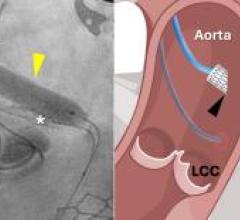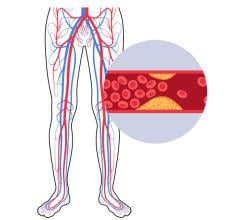November 13, 2014 — ClearFlow Inc. announced positive results from the Prevention of Retained Blood Outcomes Using Active Clearance Technology trial (PRO-ACT), a clinical study evaluating the use of PleuraFlow Active Clearance Technology System to prevent retained blood complications. The PleuraFlow System enables caregivers to actively keep chest drainage tubes clear of clots in the early hours after heart surgery.
The PRO-ACT studied the efficacy of a protocol for actively clearing chest tubes of clotted blood to prevent retained blood complications. “Chest tube clogging is known to occur in over one-third of heart surgery patients in the early hours after heart surgery, and nearly one in five can have some form of retained blood complication that includes the need to perform subsequent invasive reinterventions to remove undrained blood or clot from inside the chest after heart surgery,” said Ed Boyle, M.D., the founder and chairman of ClearFlow.
The primary outcome of this study was a reduction of interventions for retained blood complications after heart surgery and prior to discharge. The study results were presented at the Cardiovascular-Thoracic (CVT) Critical Care 2014 annual meeting, organized by the Foundation for the Advancement of CardioThoracic Surgical Care (FACTS-Care) in Washington, D.C.
The PRO-ACT results were presented by study principal investigator Theodor Fischlein, M.D., of Klinikum Nürnberg Heart Center. The results showed a statistically significant reduction of interventions for retained blood complications by 42 percent in the treatment group. In addition, the trial revealed a statistically significant reduction of postoperative atrial fibrillation (POAF). Patients treated with PleuraFlow System also had a statistically significant reduction in bleeding, suggesting that the Active Clearance Technology may help reduce the amount of bleeding after heart surgery.
“We are very pleased to have completed the first trial of its kind in this field that shows an immediate and significant reduction in the need for interventions for retained blood complications, as well as other common complications in patients recovering from heart surgery,” commented Fischlein. “We are always striving for ways to improve outcomes and this appears to be a promising technology that may achieve that goal.”
“Building on prior published studies showing that active clearance is superior to the currently used methods to remove shed blood from around the heart and lungs after heart surgery, this study shows a clear clinical benefit for patients that can also translate to a significant economic value for hospitals and payers,” commented Paul Molloy, President & CEO of ClearFlow. “Most hospitals are shouldering the burden of extensive cost increases due to lack of consistent protocols regarding blood evacuation post-cardiac surgery and the unacceptable failure with current available drains,” added Molloy. “We now have data from multiple sources that show approximately 20 percent of cardiac surgery patients require additional interventional procedures, longer ICU and hospital stays, hospital re-admissions, and sometimes even death due to the complications caused by inadequate drainage.”
The company is currently raising capital for further clinical expansion to serve heart surgery patients worldwide, as well as to build its pipeline of products for other surgical fields. The PleuraFlow System with Active Clearance Technology is approved for use in the United States, Europe, Australia, Brazil and Canada, and has either cleared or pending clearance in nearly a dozen additional countries.
For more information: www.clearflow.com


 February 06, 2026
February 06, 2026 









